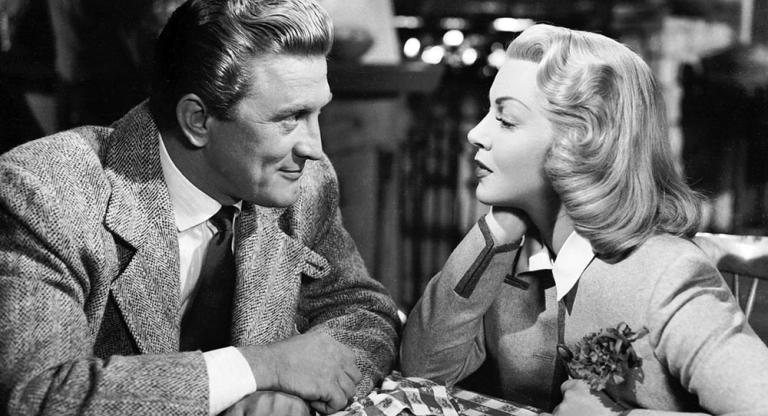
Cabin in the Sky screens tonight at Brooklyn’s BAMcinematek at 7:30 pm. The musical was master filmmaker Vincente Minnelli’s first feature film as director and stands as a rare and complicated American film. It is rare because it boasts an all Black cast, a large budget, and a release through a major studio at a time when this was far from the norm, and it is complicated because it is a work based on racial stereotypes of southern Blacks while also being a film that documents and highlights the towering artistry of Black entertainers at an extraordinary time. Lena Horne (her only leading role in an MGM musical), Duke Ellington, Louis Armstrong (who gives a hilarious performance but contributes no song to the film) Eddie “Rochester” Anderson, Rex Ingram, and Ethel Waters all light up the screen with their songs and performances, their genius shining through a folksy and infantilized scenario.
Cabin in the Sky tells the story of Little Joe (Rochester)—a likeable guy who is continuously led astray by vice, most notably gambling and a young woman by the name of Georgia Brown (Horne). His wife, Petuna (Waters), tirelessly works to save Little Joe from himself but nevertheless a sneaky gambling excursion results in a shooting which leaves him on death’s door. Here the film kicks into high gear, when both an Angel and a Devil come to claim Joe’s soul (the Angel mostly on account of Petuna’s expert praying). In order to settle the dispute over his soul, Joe is given six more months on earth to prove where he belongs.
In the film’s funniest and most imaginative scene Lucifier Jr. (Ingram) and his cronies concoct a scheme to claim Little Joe’s soul. They pace and smoke and bounce ideas back and forth like admen on the boss’s shitlist. Armstrong is a comic revelation, his physicality and comedic timing an extension of his effortless artistry, eliciting the same giddiness in the viewer he would with song. The office in hell sequence and setting provides Minelli and his performers with a fantasy space, untethered from reality and the latent racism which haunts the more realistic settings and scenarios in the film.
Cabin in the Sky struggles with and expresses the confusion at the heart of white America’s grappling with Black America. Even a work in a less violently racist mode like Cabin, obvious hatred is replaced by condescending paternalism. The magic of what Minelli and his peerless cast bring to the film however, transcends its material, the sophistication of their art proving that in American culture they were the adults in the room.



